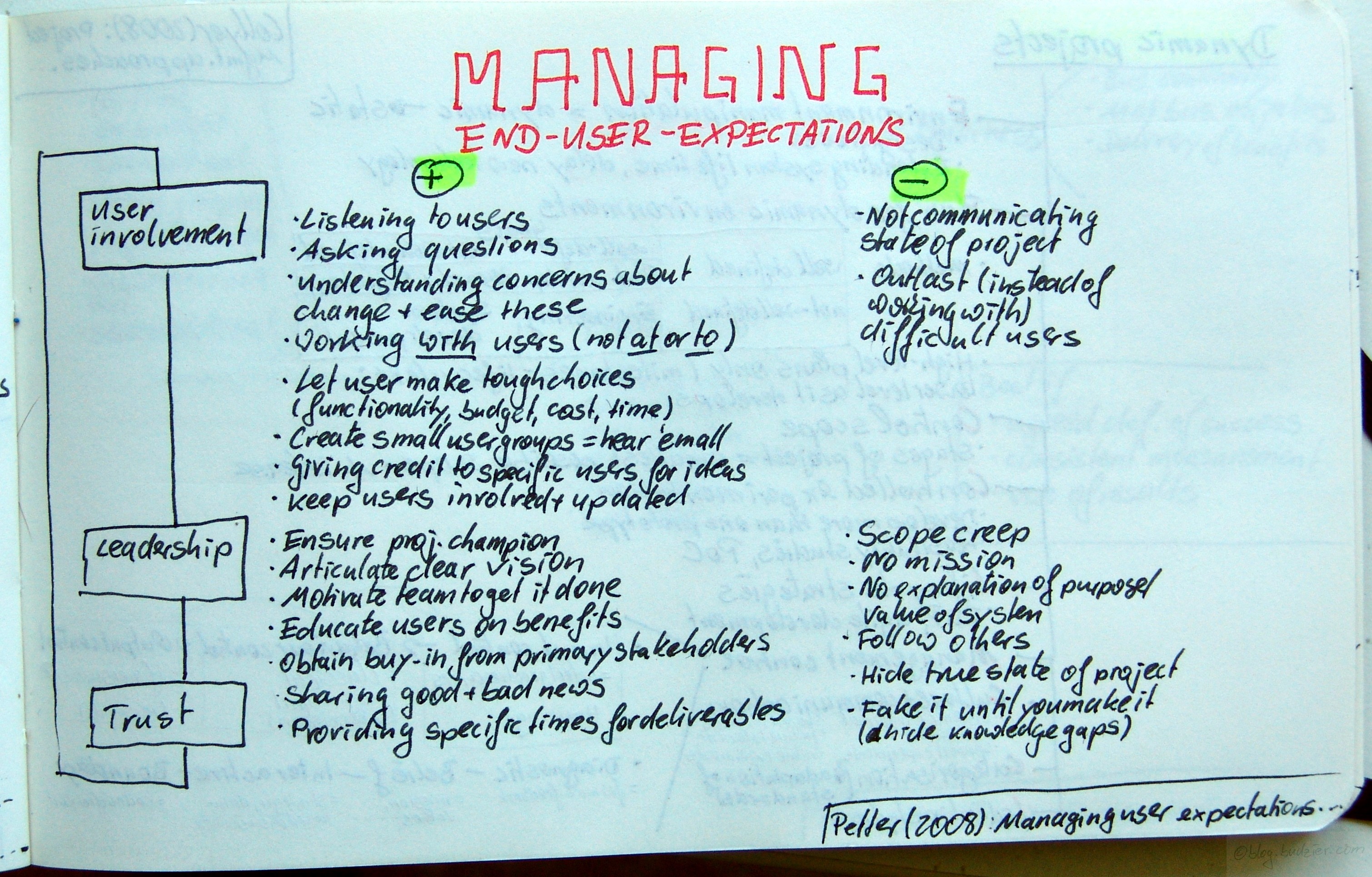Petter, Stacie: Managing user expectations on software projects – Lessons from the trenches; in: International Journal of Project Mangement, in press (2008).
doi:10.1016/j.ijproman.2008.05.014
Petter interviewed 12 project management professionals on managing the end-user expectations. What worked and what did not work?
The conclusions cover three broad areas – end user involvement, leadership, and trust. As far as user involvement is concerned the practices that work included
- Listening to users
- Asking questions
- Understanding concerns about change and actively ease these
- Working with the user (not at or to them)
- Let user make tough choices, e.g., on functionality, budget, cost, time
- Create small user groups to hear them all
- Giving credit to specific users for ideas
- Keep users involved and updated throughout the project
What did not work were – not communicating the project status, and trying to outlast difficult users.
On the leadership dimension useful practices mentioned include
- Ensure project champion
- Articulate clear vision
- Motivate team to get it done
- Educate users on benefits
- Obtain buy-in from primary stakeholders
Factors leading to end-user dissatisfaction were
- Scope creep
- No mission
- No explanation of purpose/value of the system
- Follow others
Trust building activities that worked well, were sharing good and bad news, and providing specific times for deliverables. What did not work were hiding the true status of the project, and ‚fake it until you make it‘ also known as hiding knowledge gaps.
